Born out of colonial mistakes, it is time to face reality and divide Iraq.
The Islamic State of Iraq and the Levant (ISIS), a terrorist organization known for its ruthlessness, gained control over Mosul overnight and swept through Iraq’s Sunni-dominated areas toward Baghdad.
Shi’ite clerics, including Grand Ayatollah Ali Sistani, have encouraged followers to take up arms and help the Iraqi government. Kurdish forces in the north have secured control over disputed territories outside the Kurdistan Regional Government’s (KRG) administration, notably the oil-rich city of Kirkuk. The Iraqi government has asked for American support, while simultaneously calling on its people to take up arms and fight ISIS. This is a frightening sectarian image of a country that US forces left in December 2011, hoping Iraq was on the path toward democracy and that its military forces were able to uphold stability.
Less than two months ago, Iraq held parliamentary elections in which Prime Minister Nouri al-Maliki’s State of Law Coalition came first, winning 92 seats. At the time, it was difficult to predict the country’s descent into chaos just a few weeks later. Particularly troubling is the defeat of a US-trained army that had a budget of $17 billion in 2013 against a few hundred ISIS fighters supported by Sunni tribes and insurgent groups, including the Ba’athist Jaysh Rijal al-Tariqah al-Naqshabandia.
Amid recent events, we must ask what went wrong and what should be done next. Is a US intervention needed and, if so, to what extent could it solve Iraq’s problems? Was Joe Biden’s decade-old prediction that Iraq would break up along sectarian lines correct? And should we heed Biden’s policy recommendation of giving different sects greater autonomy over their respective regions?
Many have addressed these issues with reference to US policy in Iraq and post-2003 domestic politics in the country. Recent violence has sparked renewed questioning of the necessity and legitimacy of the 2003 invasion, as well as major American policies such as the disbandment of the Iraqi army. Maliki has also been severely criticized and blamed for the current turmoil, due to his sectarian policies that have alienated Sunni and Kurdish groups.
Maliki’s Record
Throughout his two terms in office, Maliki has efficiently used his position to marginalize and eliminate opponents from the political process, especially those in the Sunni camp. In December 2011, Maliki accused Sunni Vice President Tariq al-Hashemi of terrorism and for running death squads, forcing him to flee the country. Similar charges were pressed against bodyguards of former Sunni Finance Minister Rafi al-Issawi, leading him to resign.
Western powers have avoided addressing the situation’s true cause: Iraq is a fake state. Iraqi identity is a myth. A century of Iraq’s history testifies to this fact, especially post-2003.
Under Maliki, the Shi’ite-dominated Iraqi army has been harsh on any form of civil Sunni protests, particularly during the April 2013 demonstrations in Hawija near Kirkuk, leaving more than 20 protesters dead. Another example was a raid on antigovernment protester camps in Ramadi later that year. Maliki’s success in the recent elections has further disappointed the already alienated Sunni population, and is a major reason behind ISIS’ success in the country’s Sunni region.
Meanwhile, Maliki’s relationship with the Kurds has been far from ideal. The trending topic before the ascent of ISIS was a legal struggle between the KRG and the central government in Baghdad over the former’s oil exports. Maliki delayed the payment of the KRG’s share of the state budget, thereby creating problems for the Kurdish state government in paying its employee salaries and funding developmental projects. For Maliki, the aim of this budget dispute was to force his stance on Kurdistan’s oil industry as well as on other disagreements between Baghdad and Erbil, especially regarding disputed territories, the Peshmerga (Kurdish military force) and the issue of his third term.
Iraq’s Establishment: The Root of the Problem
However, analyses that explain the current crisis through a regional power struggle and the Syrian Civil War are usually short-sighted, and fail to discuss the situation’s deeper historical causes. In order to find the roots of the current situation, one needs to dig further into history, going back to the establishment of Iraq in the early 20th century.
It was exactly a century ago, in 1914, when British forces started their military campaign in Basra, gradually moving north and occupying territories under Ottoman rule. A few years later, British troops had succeeded in controlling the Ottoman provinces of Basra, Baghdad and Mosul, populated mainly by Shi’ite and Sunni Arabs and ethnic Kurds. In 1920, Britain created a new state out of these three provinces and appointed a Sunni Arab as Iraq’s first king.
From its inception, Iraq and its artificial borders were held together by force, as numerous Kurdish and Shi’ite revolutions were brutally crushed. In his 1937 memoirs, King Faisal states: “Regrettably, I can say there is no Iraqi people yet, but only deluded human groups void of any national idea.” In spite of Iraq’s independence in 1932, a transition from monarchy to republic in 1958 and Western-imposed democracy in 2003, the perennial disunity of the country remains.
Since Iraq’s establishment, none of its three major peoples have lived in peace. For decades, Shi’ites and Kurds were ruthlessly oppressed by Sunni-dominated regimes in Baghdad. Many innocent civilians across Iraq were killed and injured in brutal battles. The chemical bombardment of Halabja by Saddam Hussein in 1988 and numerous mass graves found throughout Iraq are just two known examples of such atrocities. This trend has reversed since 2003. Now, Shi’ites have become the oppressors, while Sunnis and Kurds are the oppressed.
The presence of external enemies — the once Shi’ite Iran for Sunni-ruled Iraq, and later a demonized Kuwait and Israel — has helped legitimize domestic brutality and preserved the regime. Maliki’s government continues to pursue this strategy and frequently accuses Saudi Arabia, Turkey and the Gulf states of destabilizing Iraq by supporting the opposition, both legal and illegal. Hence, the curse of Iraq has undeniably affected its neighbors and the Middle East, especially through wars with Iran, the occupation of Kuwait and the provision of a safe haven for terrorists after 2003.
Due to respect for territorial integrity, the principle of national sovereignty and fear of increased Kurdish nationalism, Western powers have avoided addressing the situation’s true cause: Iraq is a fake state. Iraqi identity is a myth. A century of Iraq’s history testifies to this fact, especially post-2003.
ISIS and the Division of Iraq
For any potential solution, including US intervention, regional cooperation and the establishment of a new broad-based government would only be temporary fixes. These scenarios have all been tried in the past and the real cause of trouble would remain unsolved.
Escalating sectarian tensions, along with ISIS’ takeover of Sunni areas, have made the situation even more complex. It is time for both Iraqis and the whole world to end the farce called Iraq. Otherwise, innocent Iraqi civilians will pay the price for clinging onto a century-old mistake of a united country.
Dividing Iraq along sectarian lines would allow all groups to exist autonomously and to live in peace with their neighbors. The post-2003 history of Iraq proves that ISIS’ success in Sunni areas is a direct outcome of Sunni Arabs’ marginalization from the political process and their victimization by a sectarian Iraqi army. If Sunnis were in charge of their own fate, they would repel extremists from their territory, as they did through the US surge policy. The fact that ISIS is not alone in the fight against the Iraqi government further supports the above claim. However, Sunnis need to be empowered before it is too late. Otherwise, ISIS’ hold in Sunni-majority areas will be strengthened, leading to further violence in an already volatile Middle East.
The views expressed in this article are the author’s own and do not necessarily reflect Fair Observer’s editorial policy.
Support Fair Observer
We rely on your support for our independence, diversity and quality.
For more than 10 years, Fair Observer has been free, fair and independent. No billionaire owns us, no advertisers control us. We are a reader-supported nonprofit. Unlike many other publications, we keep our content free for readers regardless of where they live or whether they can afford to pay. We have no paywalls and no ads.
In the post-truth era of fake news, echo chambers and filter bubbles, we publish a plurality of perspectives from around the world. Anyone can publish with us, but everyone goes through a rigorous editorial process. So, you get fact-checked, well-reasoned content instead of noise.
We publish 2,500+ voices from 90+ countries. We also conduct education and training programs
on subjects ranging from digital media and journalism to writing and critical thinking. This
doesn’t come cheap. Servers, editors, trainers and web developers cost
money.
Please consider supporting us on a regular basis as a recurring donor or a
sustaining member.
Will you support FO’s journalism?
We rely on your support for our independence, diversity and quality.


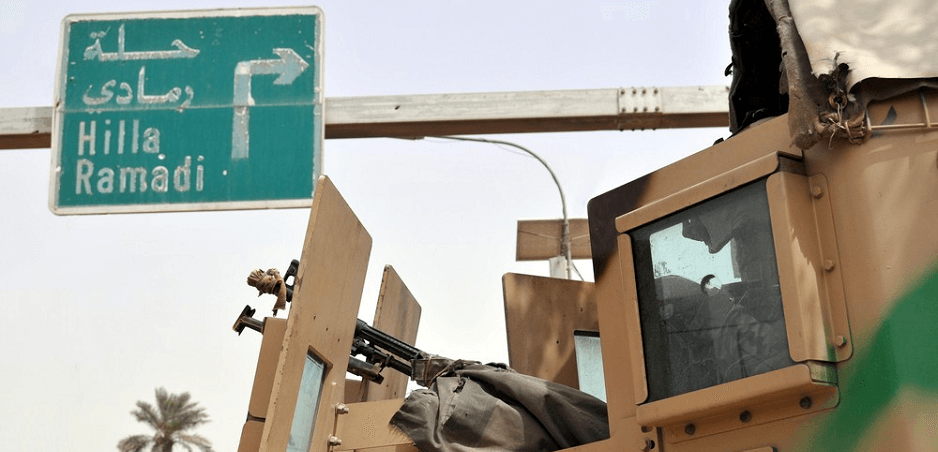

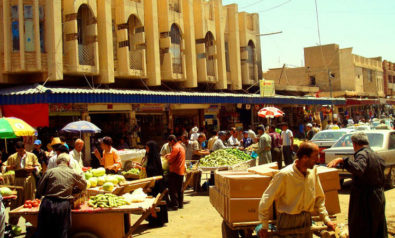
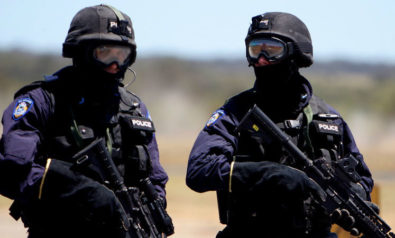

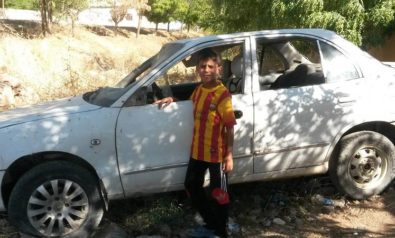

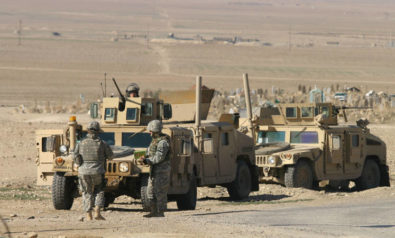
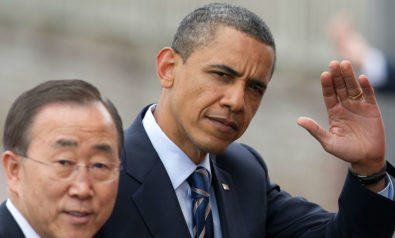

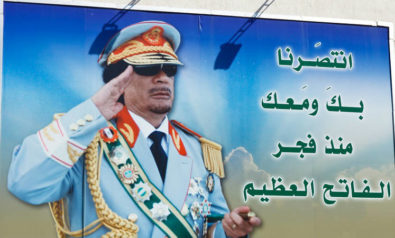


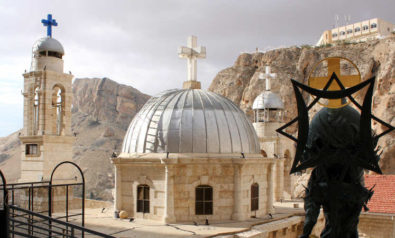


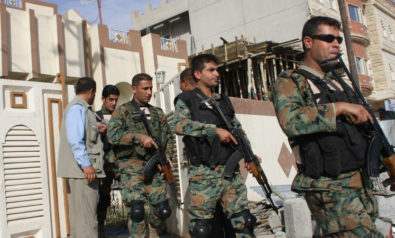

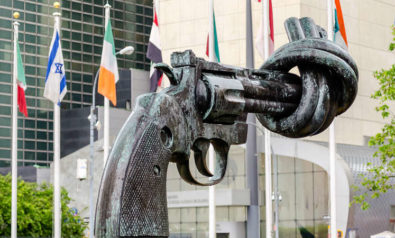

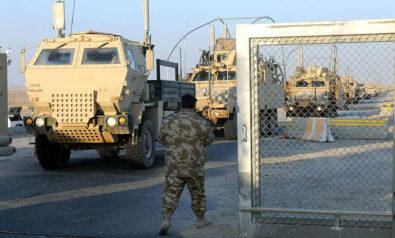





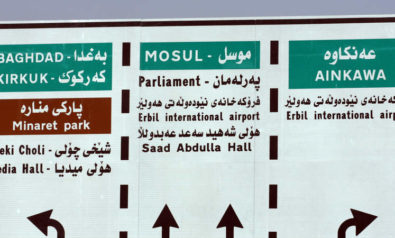


Comment
Wont this solution of disintegration lead to creation of another state under terrorist control , and will form centre for supply of arms and infiltration in western Asia and Europe as well.